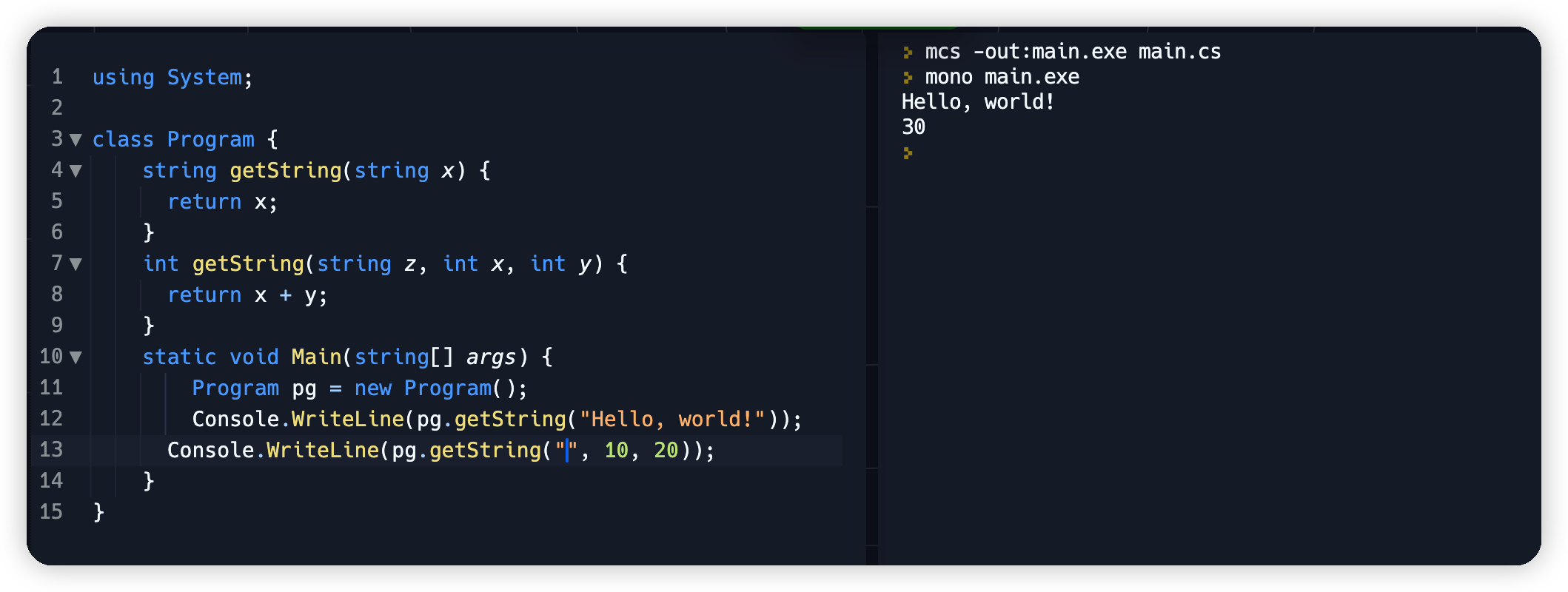在ts中去描述函数
可以用Function来描述
但是不够精确,一般不会使用
1
const fn:Function = () => {}
一般是箭头函数
1 | type AFun = (x:number, y:number) => number; |
函数声明
类型约束(type constraints)
- extends
- TODO
函数泛型
泛型参数
泛型的类型推导
通过函数入参推断泛型参数的值。
函数签名 signature
类型约束Constraint
可选参数 Optional parameter
THIS
- 有this的函数声明
1 | type Person = { |
函数重载 Function overloads
not overrides。
对于同一个函数名称,如果产生不同的入参和返回值,在JS里我们可以这样实现。比如两个值相加。
1 | // function add(x:number, y: number):number; |
function signaturedesign
函数名,入参,返回值一致。
当新增一个参数时
1 | function add (a, b, c) { |
So,在ts 里对于函数类型的严谨性,需要重新声明该类型。
1 | // type define for add function |
重载函数一般通过以下几种方式。
参数类型不同
参数个数不一致
参数顺序
参数默认值
这里有一个理解的问题(就是把字面量理解为类型还是参数默认值,但理解为类型更合适)
1
2
3
4
5
6
7
8
9
10
11
12
13
14
15
16
1701 //1声明定义
02 function disp(x:"Jack",y:number);
03 function disp(x:"Smith", y: number);
04 //2实现
05 function disp(x: any, y: any) {
06 if ( x === "Jack") {
07 console.log("Jack = "+y);
08 }
09 else if (x === "Smith") {
10 console.log("Smith = "+y);
11 }
12 else {
13 console.log("未实现");
14 }
15 }
16 disp("Jack", 3);
17 disp("Smith", 6);
返回值类型不一致
返回值个数不同

函数重载的最佳实践(不需要重载的情况)
- 如果返回值一致/ 参数一致,可以把两个或多个重载合为一个。
剩余参数 Rest
实参 argument
形参 parameter
1 | const args = [8, 5] as const; // convert to turple |